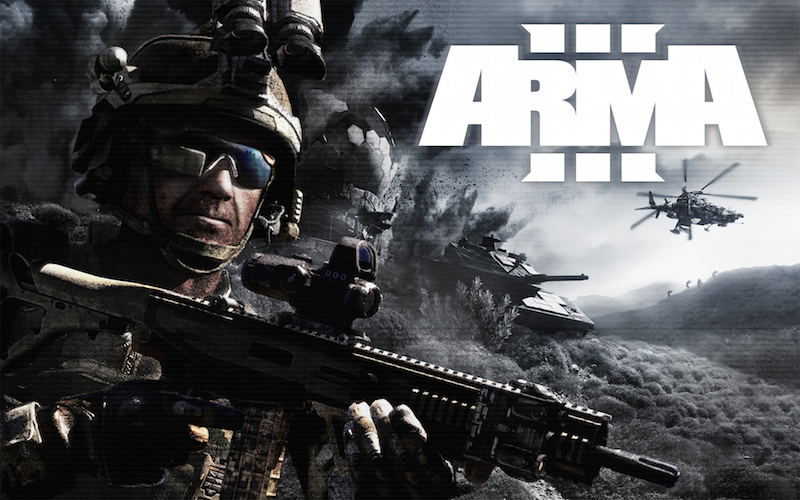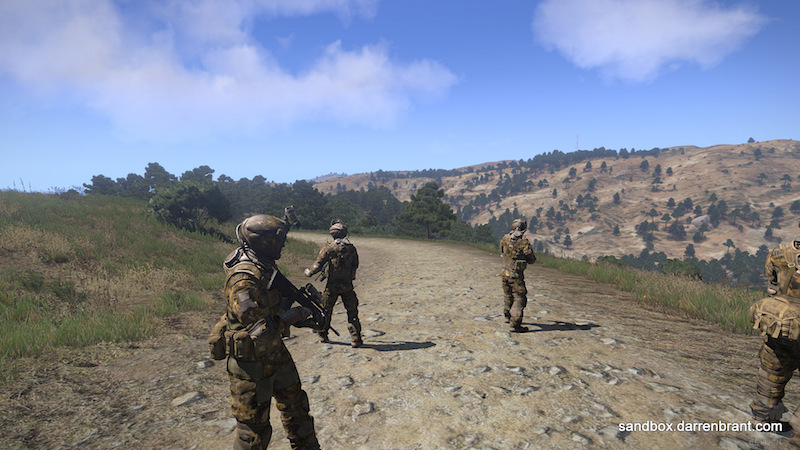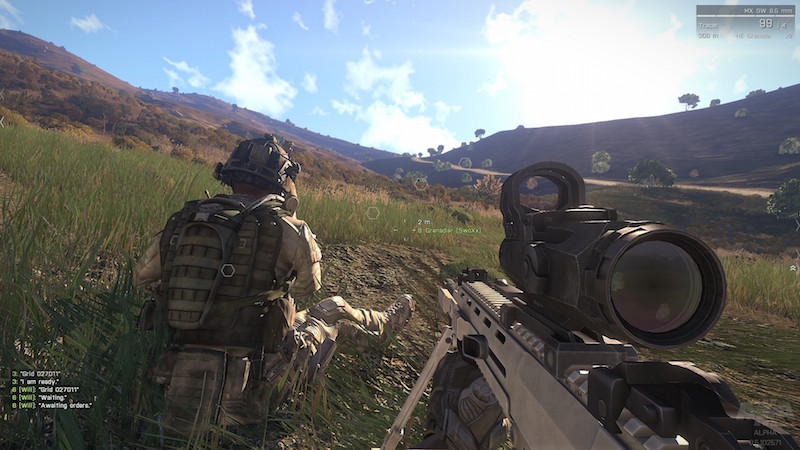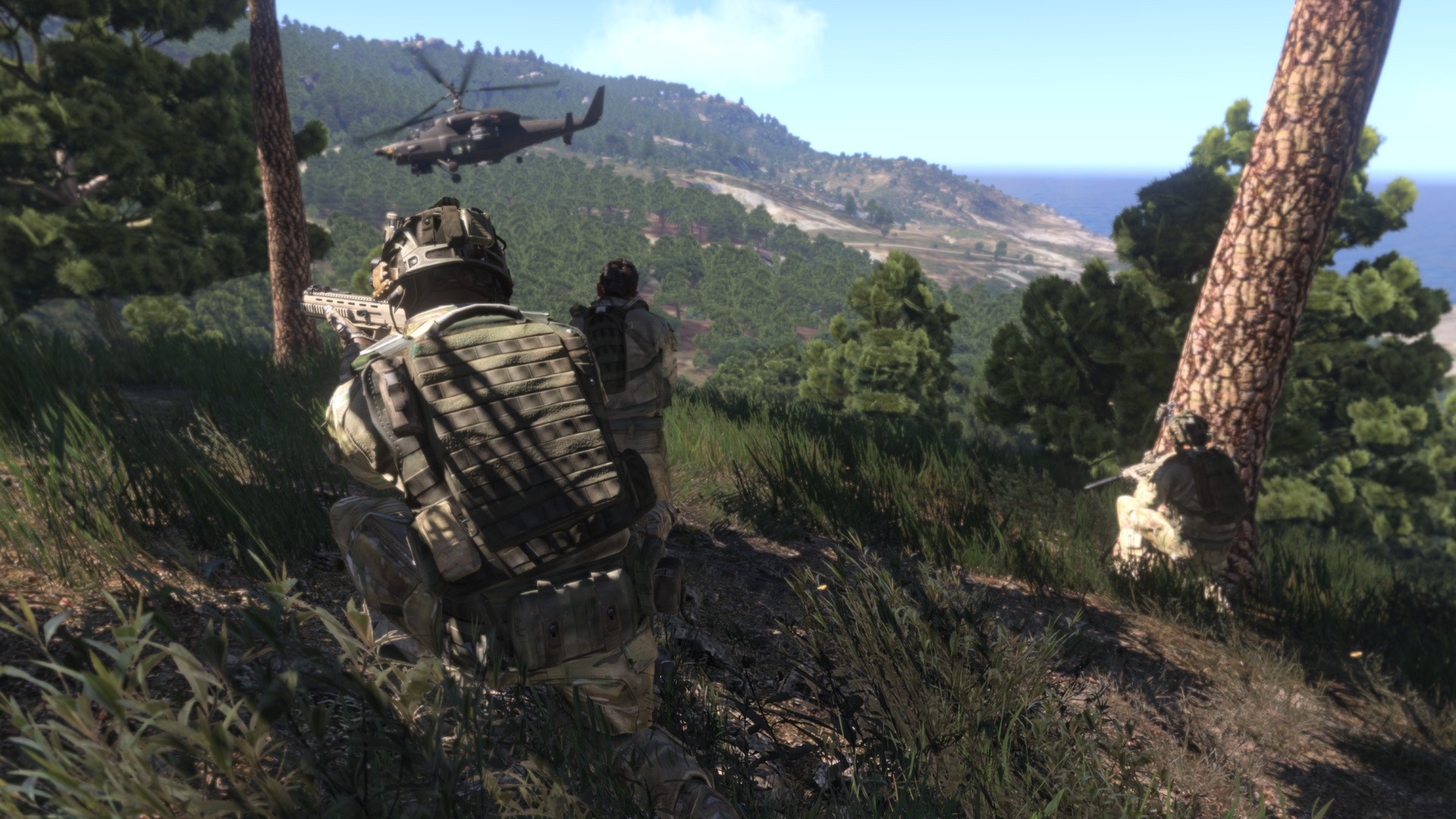Get the weekly SPARTANAT newsletter.
Your bonus: the free E-Book from SPARTANAT.

INTERVIEW: "Arma III - This is war"
Arma III offers a unique gaming experience focusing on intensity and realism in the world of video games. Creative Director Jay Crowe explains how the game sets itself apart from others, striking a balance between simulation and gameplay. With a dedicated community creating content, Arma III stands out as a military game unlike any other.
Can you play war? If you ask that question, you've never looked into the world of video games. Medal of Honor, Battlefield, and others are huge hits on consoles and computers. Arma III is a hidden gem compared to them, focusing on intensity and realism. At the end of the game trailer, it declares: "This is war." We asked Jay Crowe, the Creative Director on Arma 3, what sets apart games from simulations and why both come together in Arma III.
SPARTANAT: Shooters are "in." But what sets Arma III apart from games like MoH or Battlefield?
JAY CROWE: Some aspects of these games may seem similar, but I think Arma differs in a significant way. We've worked hard to create an authentic representation of a combat situation and aim to create more content depth and challenge throughout the game. While Arma is infantry-centric, the broader military framework - the variety of weapons, vehicles, and equipment - is also a crucial part that makes our game unique. This, along with the openness of our platform, are strengths we see that set us apart from others.
Whether it's the ability to create your own scenarios using an in-game editor or the freedom to explore the vast, open landscapes of the terrain, Arma is a game for players who want a grand experience. Over the years, a dedicated community has emerged, creating content for the series. They enrich Arma with new landscapes, vehicles, and weapons, introduce game mods, and more. SPARTANAT: Where do you see the difference between a game and a simulation?
SPARTANAT: Where do you see the difference between a game and a simulation?
JAY CROWE: That's a good question, although I don't believe there is a simple answer to it. There are some products out there that position themselves as simulators and do a great job of immersing deeply into real-life experiences and situating that with a set of precisely simulated mechanisms and processes. On the other hand, there are games that abstract and simplify to highlight certain aspects and enhance the "experience" of a particular subject, while also adding elements to gain complexity.
Our series has always been a cross between a game and a simulation. Some things are straightforward - like cockpit instructions for planes and flight models - while other aspects of the game can have multiple complex layers on one level. Where we feel it's necessary, we delve deep into content - such as ballistic simulation. We try to model as many details as possible by taking references from real life and accurate data, aiming for something easy to do (firing a weapon) that is still difficult to master (hitting a moving target from a distance). Whenever we add or represent a particular feature, we make the decision on what level of complexity to take or how to simulate it.
In general, we try to model things as accurately as possible, where we believe it is beneficial to gameplay and technically feasible. Getting the balance right is difficult, and there is always more to do that we want to do, but I think with Arma III, we have established a solid foundation on which we can build in the future.
 SPARTANAT: It is true that in civilian gaming, fantasy devices are used instead of real weapons? Why?
SPARTANAT: It is true that in civilian gaming, fantasy devices are used instead of real weapons? Why?
JAY CROWE: Although we try to use as much real data as possible, we have chosen to keep everything fictional in our game to retain our creative freedom: from the weapons and vehicles to the locations and factions. Therefore, Arma III is set in the year 2035. This means that we have also included prototypes of weapons and vehicles, ultimately using the "further away" trick to get closer to what modern warfare is today.
SPARTANAT: What makes Arma the most realistic of all simulations?
JAY CROWE: Arma III is a broad military platform. Its scale and openness are its most essential strengths. We believe that the variety of vehicles and equipment and the vast, open terrain make this game feel so realistic. These elements allow us to create a large, convincing experience where real-world tactics can be applied. Additionally, it is important for us to offer authentic features and techniques, including simulating various elements of modern combat. Ultimately, we take the most important aspects and represent them as accurately as possible in the game.
These are the basics of the platform, but one could argue that it is the openness of Arma III that gives those who want more depth in the simulation or want to play the game their way, opportunities to do so. A variety of mods enhance certain features or functionalities or add new ones. while different communities/clans ensure a cooperative environment where players can engage with others who also want to apply real tactics and procedures. In fact, it is a combination of all these elements that help make Arma III a military game unlike any other.
SPARTANAT: Is it true that there is not only a "civilian" version but also a truly military version of Arma? How is it used? And by whom?
JAY CROWE: Yes, VBS (Virtual Battle Space) is a simulation/training software that is based on the same system as the Arma Games at its core, but it has evolved much more into the areas of simulation (of processes) and training. Some of the major armed forces in the world, such as the Americans and Australians, use it to train their soldiers. However, this software is not developed by Bohemia Interactive (the company responsible for the game) but by Bohemia Interactive Simulations. Despite the name, this company is not directly related to Bohemia Interactive.
ARMA III on the Internet
ARMA III on Facebook
ARMA III on Youtube
SPARTANAT is the online magazine for Military News, Tactical Life, Gear & Reviews.
Send us your news: [email protected]
Ad
similar
Get the weekly SPARTANAT newsletter.
Your bonus: the free E-Book from SPARTANAT.



